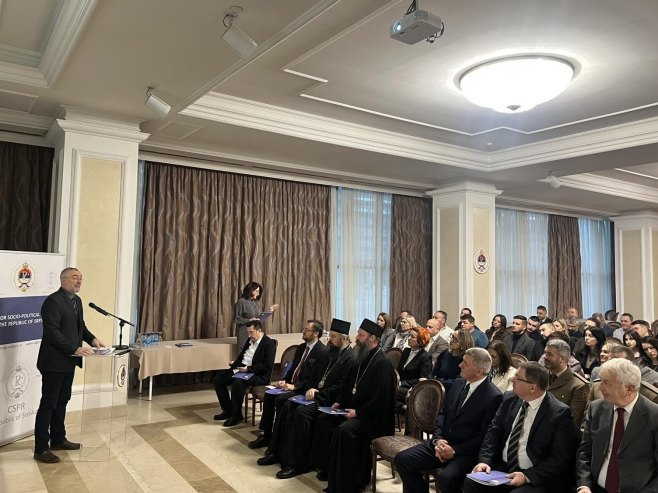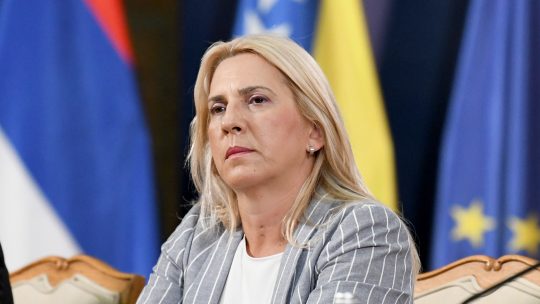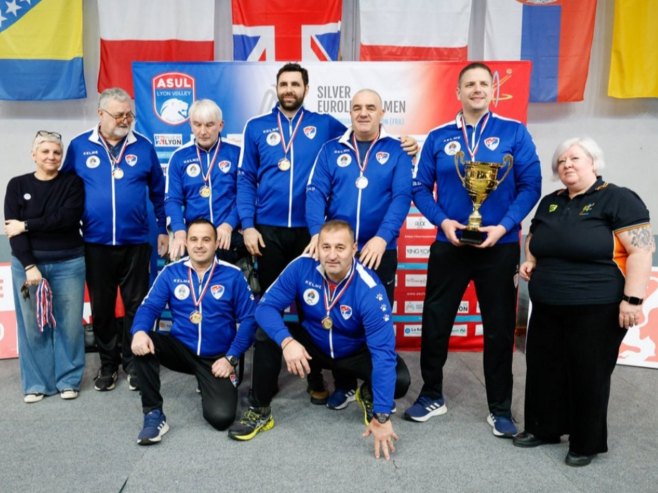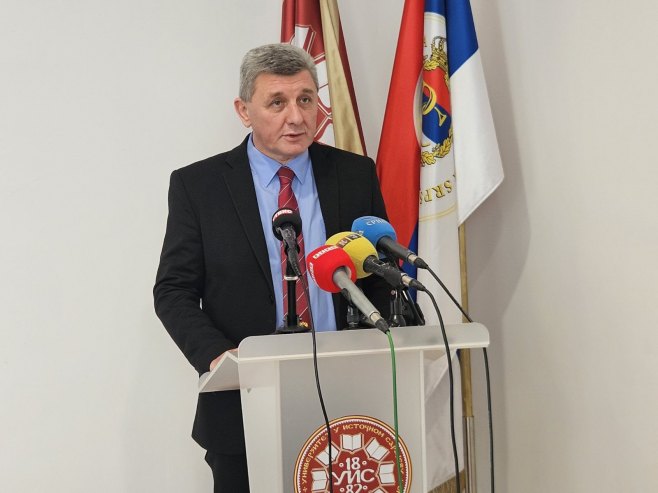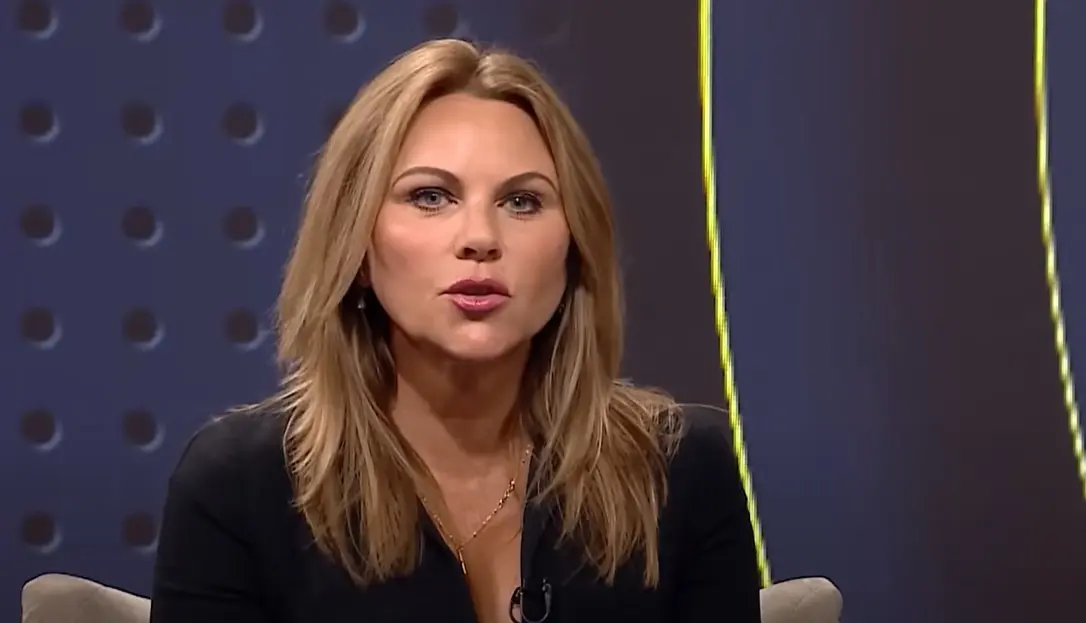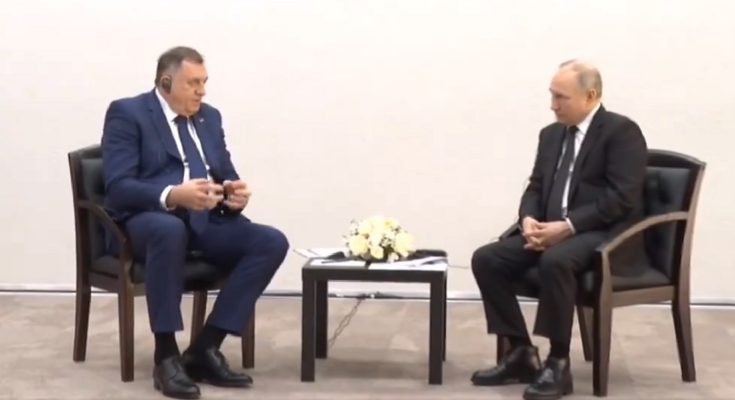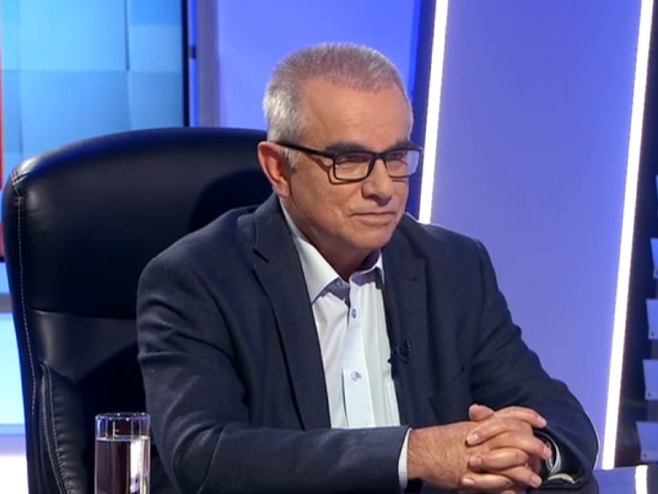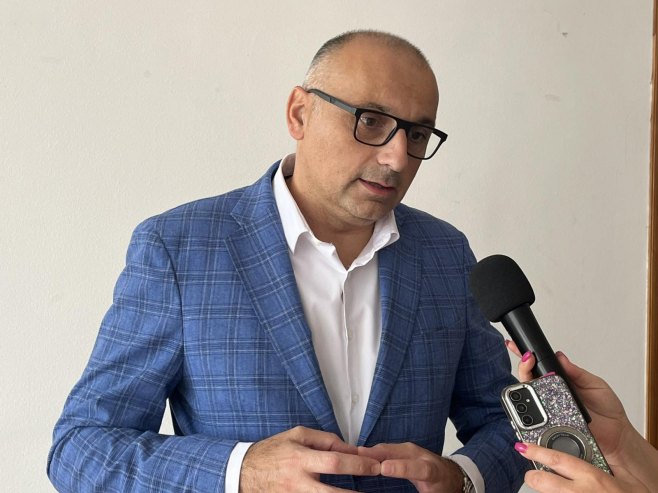The Serb member and Chairwoman of the Presidency of Bosnia and Herzegovina, Željka Cvijanović, stated that Republika Srpska is not in any kind of isolation.
“What kind of isolation is Republika Srpska in? I’ve traveled half the world. The President of the Republic has been to various places,” Cvijanović said for Newsmax Balkans.
In response to the journalist’s remark that she represents Bosnia and Herzegovina, Cvijanović said that everyone knows she comes from Republika Srpska, which they refer to as half of Bosnia and Herzegovina.
She emphasized that her interlocutors want to hear her views, as well as those of her colleagues, and believes that the very fact they are willing to listen indicates better understanding.
She explained that tools need to be developed so that the country can be accepted by all, and that is possible when everyone is included, when no one usurps anything from anyone, and when people recognize a connection with the state beyond just legal obligations.
She also questioned what Bosnia and Herzegovina can offer its citizens if a foreign tutor is interpreting everything and placing themselves above institutions.
“That is immature,” Cvijanović stated.
She pointed out that everything in Bosnia and Herzegovina has become upside down and rejected the notion that Republika Srpska is to blame for that.
“To me, the logic of politics is to reach compromises until agreement is found… We are moving towards introducing issues into political processes, through which political problems will be resolved. This is about serious politics—what do you want Bosnia and Herzegovina to become?” Cvijanović said.
She noted that the most important international partners now say that these matters must be resolved by domestic political actors, while political Sarajevo constantly calls for intervention.
“A political decision means cooperating with everyone in a multinational state, having the courage to implement what was agreed, to make a decision that cannot be changed just because one ambassador calls and twists your arm. That is politics,” Cvijanović explained.
She said she belongs to a politics where no one can twist her arm behind her back, and which can implement what was agreed.
“That is the politics of SNSD. That is the dominant politics of Republika Srpska, considering SNSD and its coalition partners,” Cvijanović said.
She said she does not expect the arrest of Republika Srpska officials to occur, but when it comes to possible expansion of investigations, she expects anything in a country where a foreigner can change the Criminal Code to target a democratically elected leader.
“In that case, anything is possible. But all sorts of countermeasures are also possible. This is a process in which things must be put in order,” Cvijanović said.
Speaking about the House of Peoples of the Parliamentary Assembly of Bosnia and Herzegovina, she said it is absurd to claim that SNSD is blocking it and asked who was actually doing that for eight or nine months.
She emphasized that it cannot be considered obstruction when Serb representatives do something, but when Bosniaks do the same, it’s considered democracy.
“People who are elected have the right to assess what they will do. Democracy means voting when you want, and not voting when you don’t. The real issue is how people interpret this—when someone from Sarajevo does something, it’s fine, but when someone from Banja Luka does the same, it’s not. I reject that notion,” Cvijanović concluded.
Time has come to untangle political issues in Bosnia and Herzegovina
Cvijanović stated that the time has come for political issues in Bosnia and Herzegovina to be resolved through political means, and assessed that the policies of certain EU member states toward Republika Srpska are nonsensical.
She said now is a good time because those who used to exert the most pressure are now more open to hearing the core of the problem and are not burdened by years of political mantras.
Commenting on certain EU sanctions imposed on Republika Srpska officials, Cvijanović said those were very superficial and short-sighted decisions that could only lead to more instability and misunderstanding within Bosnia and Herzegovina.
“I believe that such a European policy is senseless,” Cvijanović said.
She pointed out that things are changing, and that four years ago it was unimaginable for messages like those now coming from the United States to be heard.
“Perhaps maturity will come in Europe too, if they truly want partnership,” Cvijanović said.
She emphasized that the world requires dialogue and repeated that she disagrees with the conduct of countries that think problems in Bosnia and Herzegovina can be solved by imposing sanctions on individuals or an entity.
“I think that’s stupid, irresponsible, problematic for Bosnia and Herzegovina, and they will realize it sooner or later. The fact that they lack the tools to resolve certain issues is their problem, but also ours, because we are somehow tied to them and expected more understanding and diplomatic skill,” Cvijanović said.
She stated that in this situation there are no winners.
According to her, even though political Sarajevo believes Bosnia and Herzegovina is the most important country on the planet, it is not even the most important in the region.
“Bosnia and Herzegovina is no longer a focal point of interest, except in terms of ensuring peace, which indeed is the case,” Cvijanović said.
She said everyone in Republika Srpska wants peace and that everything in Bosnia and Herzegovina happens in the political arena, which implies political challenges where political solutions must be found.
“In Sarajevo, they want to rule the planet, to command European commissioners, to dictate to the administration, but new times have come,” Cvijanović stressed.
She said that in Banja Luka, political representatives come to the parliament and, based on the mandate obtained through elections, make decisions that cannot be overturned by unelected foreigners.
Cvijanović said the case against the President of Republika Srpska Milorad Dodik before the unconstitutional Court of Bosnia and Herzegovina was a farce that pushed Bosnia and Herzegovina from one crisis into another.
She emphasized that the political crisis in Bosnia and Herzegovina will be resolved through political means, which should bring benefit to all people living in the country.
“That means political peace, which will bring us back to the frameworks that should be the foundation for the functioning of any country,” Cvijanović concluded.
Source: RTRS

